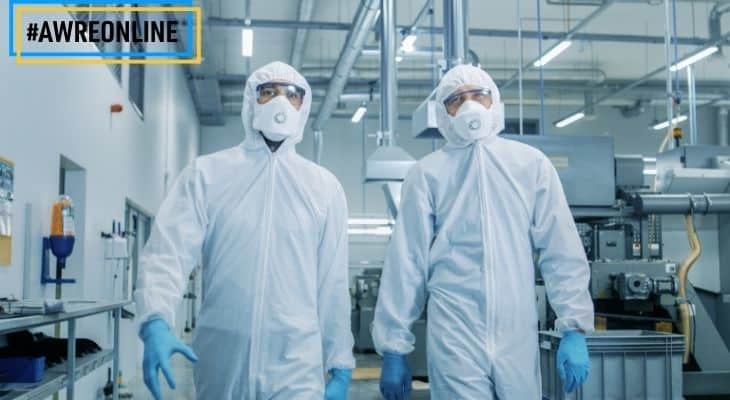5 TAKEAWAYS | The COVID Effect on the Waste Industry
COVID-19 has affected all industries across Australia, how can waste and recycling successfully minimise negative effects?
Globally, the waste and recycling industry has been hit hard by the pandemic. El Paso was forced to stop all curbside recycling efforts as their workforce shrunk significantly. Consumer preference trends are expected to shift towards fast, affordable, easily accessible and safe options.
Despite COVID-19, waste and recycling continue in Australia. This session explored its far-reaching effects, successful real-world solutions and key takeaways from industry leaders.
Below are some of the key takeaways from this session!
1. The impacts of COVID-19 on the waste and recycling industry
The impacts of COVID-19 were not exempt for the waste and recycling industry.
The overnight stop to many businesses, specifically the hospitality industry, saw an immediate 20% reduction in commercial waste collection, according to Mike Ritchie, Managing Director at MRA Consulting Group. Jim Perry, Head of Solid Waste Transport at Veolia, supported this by stating that he consequently saw a 20% reduction in commercial revenue nationally within weeks of the pandemic hitting.
On the flip side, COVID-19 has seen a 15-20% increase in the domestic generation of general garbage, green waste and recyclables as people were house-bound. As a result, this also saw an influx of organised curbside collections according to Cr Linda Scott, President of Local Government NSW, as people were using this time at home to de-clutter and take advantage of reducing household items. She commended residents of NSW for knowing the appropriate way to get rid of these items, however, also expressed her concerns that “education is an ongoing necessity” with a 34% increase in illegal dumpings from April 2019 to April 2020.
2. Infrastructure funding and the 20-year plan
When asked about the NSW governments 20-year waste strategy, heavy emphasis was placed on the need to act ‘now’.
Mike stressed that “we need a clear plan asap”. With international waste exports now banned by the federal government, the 20 year plan is more important than ever. All panellists agreed that the waste levy needs to be redirected into desperately needed infrastructure that is going to be able to process our growing waste levels here in Australia, before it becomes a much bigger issue.
“We need to build 5 billion dollars worth of infrastructure in the next 10 years, this is going to create tens of thousands of jobs. There is no better time to do so”, said Mike.
3. The continued importance of waste education
COVID-19 has been a fair indicator of where the gaps in waste and recycling education lies. With rules and regulations consistently changing, the need for ongoing education is key to ensuring the future of the waste sector is successful.
Cr Linda Scott highlighted that we are now seeing an increase in contaminated waste in our bins and it all comes back to user education. “Education during these times has been challenging but it really shows that we must not stop with it”, she continued.
The biggest learning curve during COVID-19 was for people at home to understand which bin to use when, especially when it came to PPE and disposable masks.
4. The FOGO plan
With more people working from home during this time, more residential FOGO is being produced. When asked how to get more councils to embrace FOGO separation while there are varied approaches to managing waste across the country, the response was strong.
Cr Linda Scott started the conversation saying that it all comes back to the local government. While there are different approaches to managing FOGO depending on the geographical location, Linda insisted that any plan is better than none and that aligning policies from a state-level would help the process dramatically. She continued by saying that there needs to be a lot more investment in this area for it to be a success across the board. However, praised the councils and areas that have already implemented strategies to overcome this.
5. What’s next and learnings from COVID-19
For the industry, the biggest learnings from COVID-19 were varied among the panellists.
From an industry perspective, Mike highlighted that the lack of disaster plans for most of the country when it comes to waste and recycling during a time a crisis needed to be addressed. He continued by stating that future planning and preparation needs to be done around having a flexible plan in place for the day-to-day operation of the industry, “when state borders shut down the industry wasn’t overly prepared”.
On a more personal note, Jim said that the biggest learning for him was truly operating with staff and the general public health and safety at the forefront, “I will never take that for granted again”.
Panellists
Tony Khoury, Waste Contractors & Recyclers Association of NSW
Cr Linda Scott, Local Government NSW
Jim Perry, Veolia
Mike Ritchie, MRA Consulting Group
Don’t forget to register! Simply click here to register free online.
-
Subscribe to NSW's biggest platform for waste, recycling and resource recovery
- SUBSCRIBE

